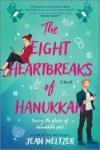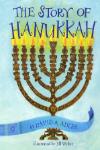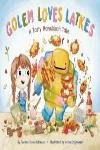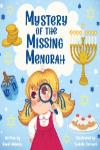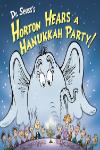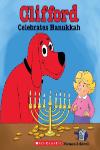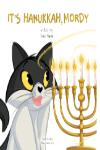Funny folk fable with a feminist twist

The book on Kindle
or at Bookshop or at IndieBound
Thoughts on “The Council of Wise Women” (The Village Life) by Izzy Abrahmson
It made me laugh, it made me sad because of missed opportunities, and it made me feel warm and fuzzy inside. These were just some of the emotions Izzy Abrahsom’s book, aka Mark Binder’s, evoked in me. At the same time, it explored social themes like female empowerment, the power of collective decision-making, and intergenerational knowledge transfer. It delivered a flawless combination and a fun read.
If you have ever heard of the fictional–yet very much of the existing–village of Chelm, you know it is supposed to be a town of fools. Numerous jokes and stories outline the simplicity of the inhabitants’ thinking, leading to intended comic consequences. The book turns this stereotype, ingrained into Jewish culture, by shedding new light on the thinking of some of the unconventional decisions. It conveys that the process’s internal logic is spotless but does not necessarily consider all the information. Even if the people are “fools,” they are very much aware of it, work with their reputation, and still do what they consider right. And it is almost always the morally right thing. It is uplifting to read a book where villains do not exist; even the slightly negative characters have plenty of redeeming qualities. The gentle, empathic warmth of the descriptions is one of the aspects that I enjoyed the most here. It moved my heart and helped me feel more human and hopeful.
It also invigorated my brain and sense of social justice. The contrast between the “Wise Men of Chelm” and “The Council of Wise Women” is delicately multi-layered. The central theme is female self-empowerment, which I fully support. I was impressed by the inspirational arch of the story (sorry, spoilers):
- at the beginning of the book, a newborn baby girl is denied the right of the firstborn
- through the anger of her mother over this
- through the whole community growing up,
- till the end, where all women gained equal rights in many areas of life and
- a woman’s fierce independence is deeply valued by herself and others and
- it does not influence her social standing anymore.
I love alternative history books, that tell stories of what could have happened under different circumstances. This is one of the best, showing how a small society could have moved towards equality much earlier. This “what-if” fiction showed a missed opportunity of the past, all this could have happened much earlier if our patriarchal society had been more open to change. Even here it only could have happened in a town of fools.
There were two necessary instruments and one condition for the portrayed emancipation. The council in the “Council of Wise Women” showed the importance of collective decision-making power and intergenerational knowledge transfer. The equal standing within the council, the shedding of social stratifications while the council is in session, the safe (womb-like) space of the meeting location, and the successful collaboration between diverse perspectives all sounded like magical realism transported from an optimistic, future ideal democratic society to a village in the past.
The narrative challenges misogynist and agist stereotypes while avoiding romanticizing traditional society. In contemporary Western society, older women often face being devalued and essentially invisible. Here they are highly valued, respected members of the community. Their wise perspective is not just included by men in the decision-making but has naturally equal footing. What men don’t, but the readers, know is that they transfer their knowledge to younger women within the framework of the council. It is possible to create a picture of a mythical distant past, where everything was better, with more balanced gender roles. This novel avoids this pitfall, by creating authentic characters, who could live in any age.
Can you find the odd one from my five favorite quotes of wisdom from the book?
- What would it be like for women to come together to support each other and protect each other?
- When women know too much, when they learn too much, they don’t want to have children any more, and the entire species will wither and die.
- When we know nothing but fear, there is no future. As soon as we have an idea, the entire world becomes possible.
- The problem with getting old was that everything familiar went away and was replaced by the new and the different.
- I am tired of deception by silence.
You can read this wonderful book as a comedy, as a coming-of-age story, as a family drama, or even as a romance. You don’t have to look for and think about the deeper themes, you will find plenty of pleasure in it. And if you have a bit of sociological interest you will get even more out of it. I sure did.
The book’s page on the author’s and the publisher’s site
Disclaimer: I have received a copy of this book and a small amount from the author which did not affect my review in any way.
Year first published: 2024
The book's page at the publisher's site


